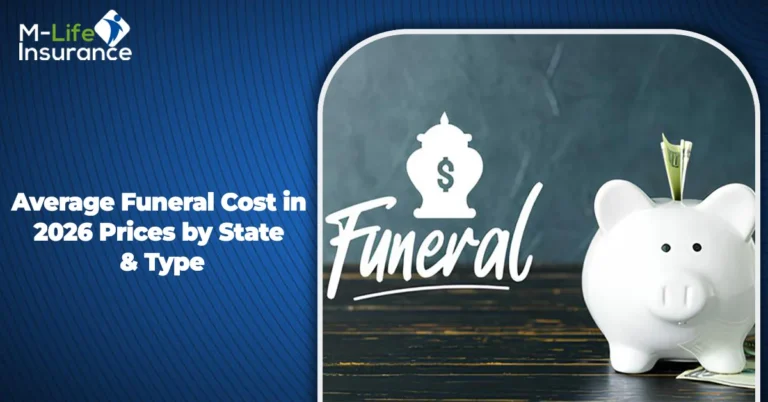Big or small accidents happen anywhere, anytime and add a recovery cost to your overall expenses. Solely medical or health insurance is not enough to cover all of your healthcare needs. And here accidental insurance can certainly help.
A type of insurance policy that helps you to keep up with some of the most unexpected events of life is accidental insurance. Such events might be emergency treatment, medical exams or bills, hospital stays, and any other expenses you have to face when you get accidentally injured. It also fills up the gap between different coverage like medical policies and other insurance.
In this blog post, we will explore what personal accident insurance is, how it works, what it covers, and much more.
What is Accidental Insurance?
Accidental insurance, also known as fixed indemnity insurance and accidental death insurance, offers protection for the insured in case of an accident that leads to injury or death. The insurer provides cash in case of injury or death from an accident covered by your plan. The benefit will be paid directly to you for injuries or your beneficiaries in case of death.
The policy covers both minor injuries and damages and major disabling events. Meanwhile, accident insurance is different from other policy types like medical, employment, or auto insurance. Having these policies is also important as accident insurance is not a comprehensive plan because it does not cover automobile damage or liability for an auto accident.
How does Accident Insurance Work?
To understand the working process of accident insurance, first, be clear about the difference between health insurance and accident insurance. Health insurance provides you coverage for the immediate treatment you may get after an accident, while an accident insurance plan covers any financial burden you have to face due to the accident.
It provides you coverage for copayments in hospitals, physiotherapy, or any other services or expenses you receive after an accident. However, these services are not covered by your health insurance policy.
One of the primary benefits of having an accident policy is that you can get the payouts in cash. In this way, you can get relief from the financial burden you may experience after an accident. Surprisingly, there is no waiting period for accident insurance and you can get the payout instantly.
What does Accident Insurance Cover?
It is a supplemental insurance that would be beneficial when used in combination with some major medical plan. Accident insurance covers most of your expenses not covered by a medical plan along with some non-medical costs like rent, debt, or mortgage and daily life expenses.
Below is a list of incidents covered by your accident insurance plan:
Hospital care: Hospital admission, stays, rehab unit, intensive care in hospital.
Emergency care: Ambulance, treatment, X-rays, medical tests, or ER visits.
Surgical care: Surgery, anaesthesia, outpatient surgery, ruptured disc, hernia.
Particular injury care: Eye or ear injury, emergency dental work, concussion, burns, or poisoning.
Preventive care: Some plans give you a wellness advantage that pays you for routine immunization or bloodwork.
Supportive care: Physical therapy, prescription medicines, follow-up treatment, transportation, and lodging.
Accidental death: If your death occurred due to an accident, the benefit will be paid out directly to the designated beneficiary.
What does Accident Insurance not Cover?
Accident insurance mostly covers the gap the major medical insurance or critical illness insurance can’t cover. However, the policy has some limitations too. Here are some of the things not covered by accident insurance:
How Much Does Life Isurance Cost?
- Death due to a disease or illness not covered by accident insurance.
- Injuries due to extreme sports such as scuba diving or bungee jumping.
- Getting injured while involved in illegal or criminal activities.
- Self-inflicted injuries.
- If the accident occurs while you are under the influence of drugs or alcohol, the benefit will be denied.
- If you have any pre-existing injury before paying the premium, that will not be covered.
Why is an Accident Insurance Plan so Important?
Accident insurance is a comparatively cheap insurance policy that could be the best fit for you if you want a reasonable alternative to life insurance. There is very little chance of accidental death but it may increase with certain age groups, lifestyles, and jobs.
What if you can’t work due to an injury or you have to confront expenses not covered by other policies? Therefore, it’s important to have a backup plan.
Here are a few reasons why an accident insurance plan is important.
- Accident insurance provides you coverage for the things not covered by your regular or short-term plan medical insurance.
- Medical insurance underwriting can be prejudicial as it might refuse to cover injuries due to pre-existing conditions. But accidental insurance doesn’t have any underwriting process, so no such consideration.
- Being self-employed when you don’t have workers or get paid sick days, a fixed indemnity plan gets you covered for your illness days.
- Having a policy that provides enough coverage will make you stress-free about medical expenses. You are satisfied and can live a normal life knowing that you have additional coverage.
- It’s not too costly, unlike medical insurance, based on your state and the coverage you may need.
Who may need Accident Insurance Coverage?
Below mentioned people should buy accident insurance plans:
- Individuals with active lifestyles
- Single and elderly people
- Families with small children
- People with current health insurance
- Anyone with a limited budget for unexpected accidental expenses
- Individuals looking for an affordable alternative to a life insurance plan
- Someone unqualified for life insurance because of medical reasons.
Accident Insurance vs. other Supplemental Health Plans
Supplemental health plans work greatly with medical health insurance. However, these plans also protect you beyond the Open Enrollment Period when you can’t get a major medical health policy. So, it’s critical to understand the available options in supplemental coverage and how they differ from one another. It will help you to get the best plan for you.
1- Short Term Health Insurance
This plan offers you temporary coverage when you are not enrolled in permanent coverage. It covers you for the medical bills even without any major medical plan. You are eligible for this plan if you lose your employer-based coverage and are waiting for coverage to begin with a new employer or maybe you are out of the Open Enrollment Period.
Moreover, short-term health plans do not offer the same coverage as long-term medical plans. But they offer you low premiums, quick enrollment, and coverage for any unexpected medical expenses.
2- Critical Illness Insurance
The policy is designed to cover you in case of a covered illness like a heart attack, stroke, or cancer. Critical illness insurance gives a lump sum directly to you to cover the costs instead of the hospital or doctor for the care you receive.
Similar to short-term health plans, it is easy to get and you can buy it at any time of the year. You can choose the coverage you want to get, meanwhile, illness covered by this plan may vary from policy to policy.
3- Fixed Indemnity Plans
A fixed indemnity insurance plan is to cover the things you may lose during your qualifying period like an injury, accident, or some serious illness. Just like other supplemental plans mentioned here, indemnity plans payout will directly pay to you instead of any doctor or hospital.
These plans become very effective when they provide you with another layer of protection and support by covering costs not covered by your major medical health insurance. As the benefits will be paid directly to you, you can use them for any expense you want to. They are not deductible and give you competitive rates. Furthermore, the benefit you get is fixed depending on the terms of your plan.

Joyce Espinoza, Expert Life Insurance Agent
Joyce Espinoza is a trusted life insurance agent at mLifeInsurance.com. She’s been in the insurance industry for over ten years, helping people, especially those with special health conditions to find the right coverage. At MLife Insurance, Joyce writes easy-to-understand articles that help readers make smart choices about life insurance. Previously, she worked directly with clients at Mlife Insurance, advising nearly 3,000 of them on life insurance options.





